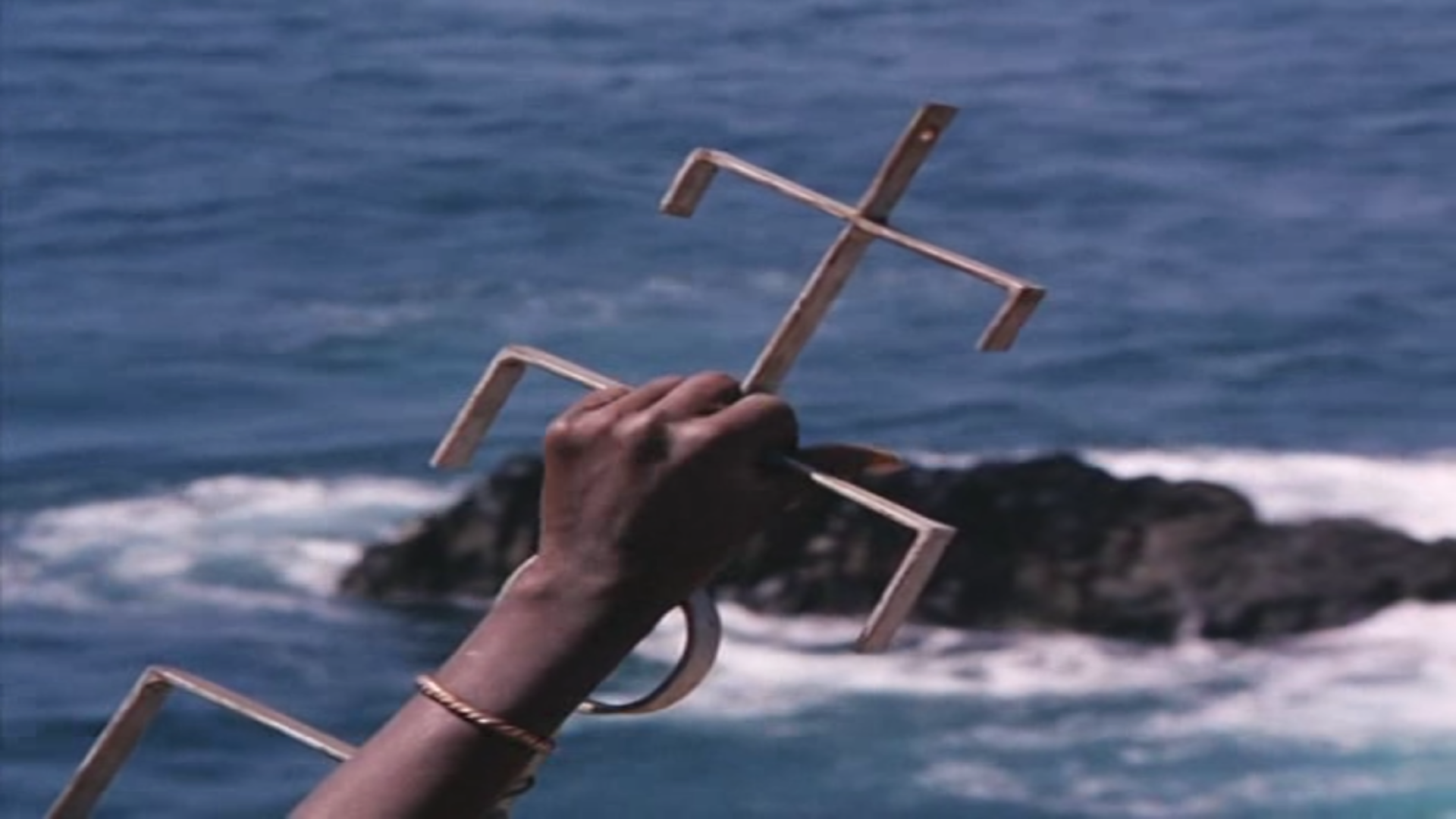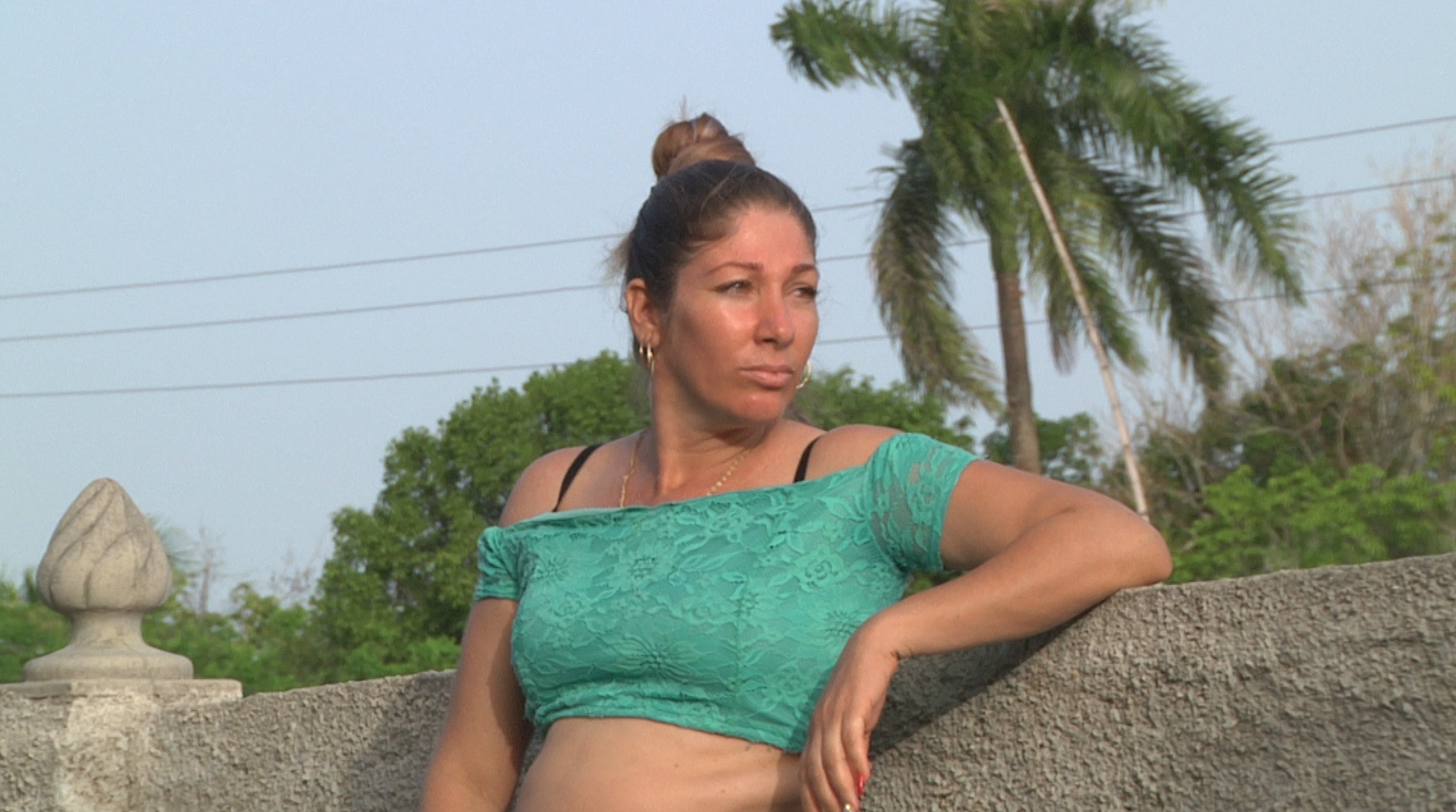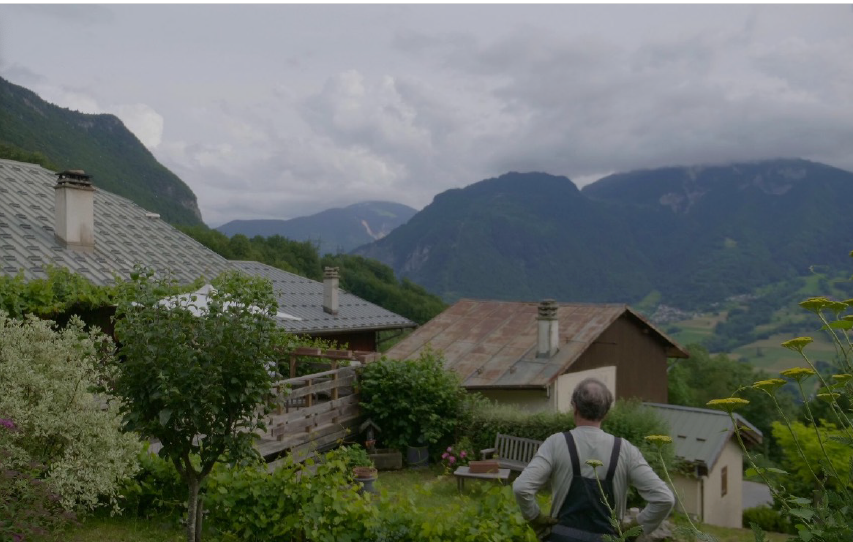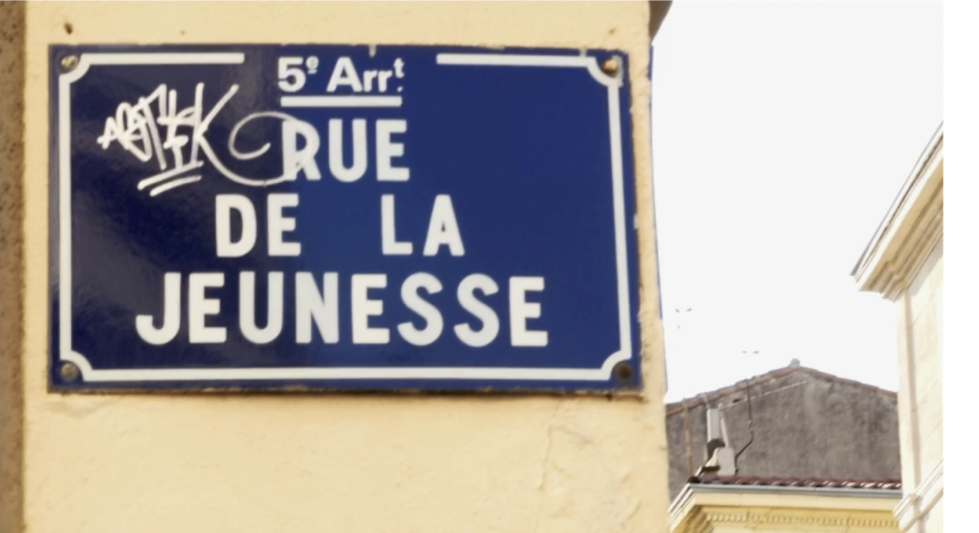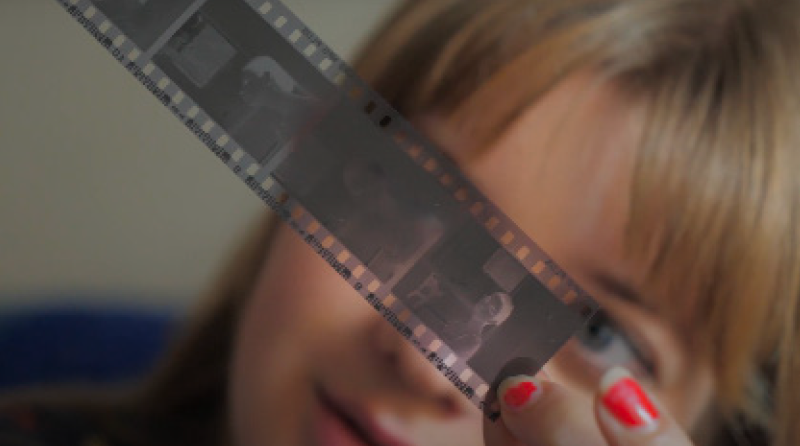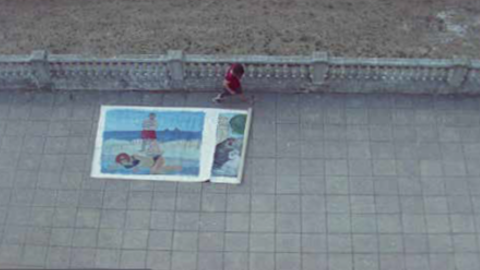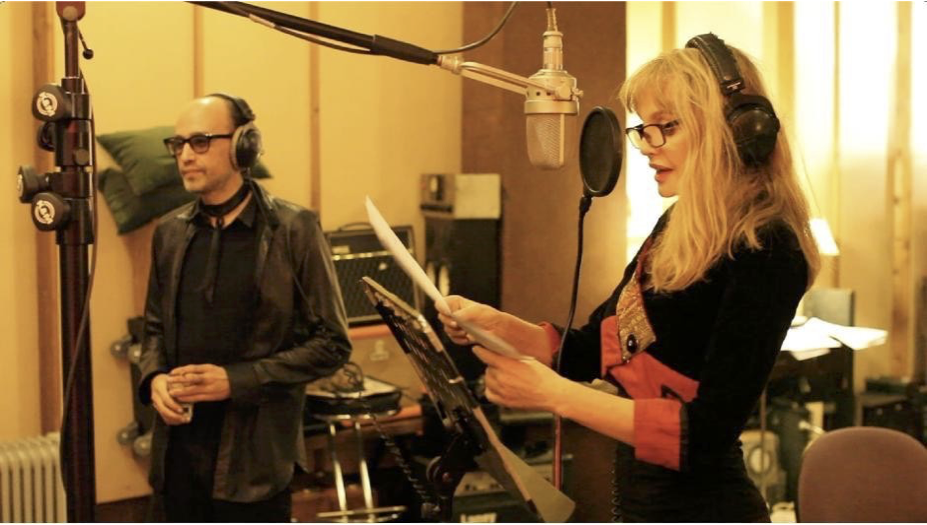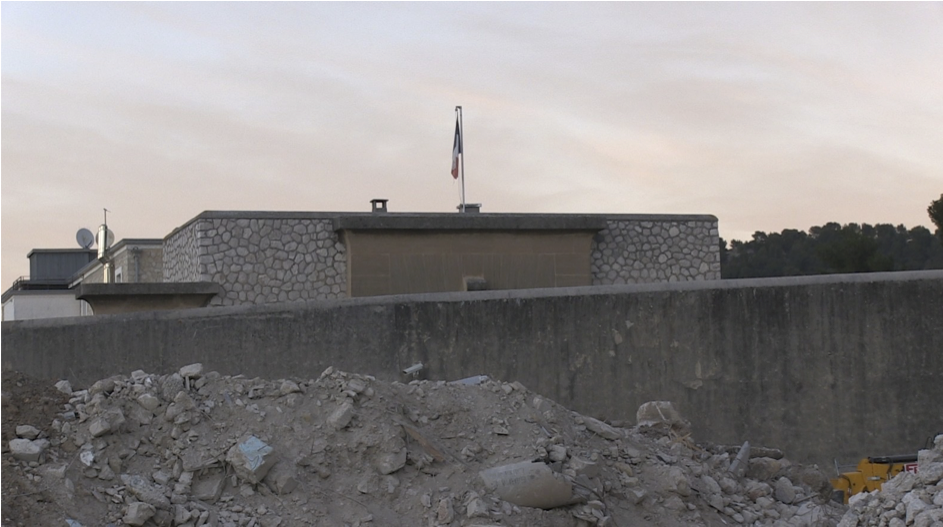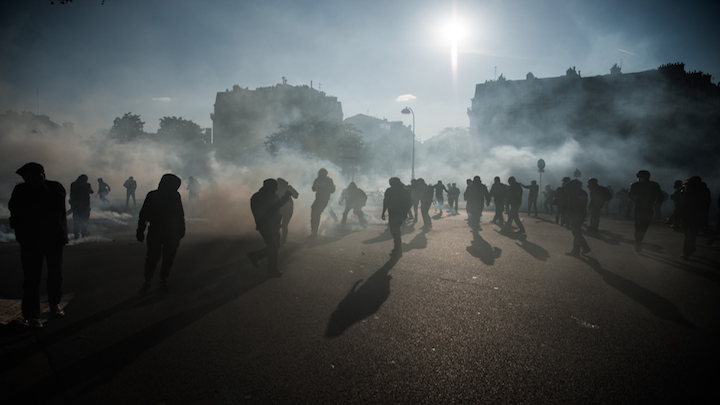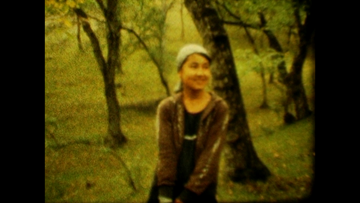 Djamilia Djamilia
Jamilia
Aminatou Echard
Documentaire
84’
S8>DCP
France
Kirghize, Ousbeck, Russe
(sous-titres Français, Anglais, Russe)
2018
Avec la participation du CNC
Aide à la production avant réalisation
Avec le soutien de la Région Ile-de-France
En association avec ARTE France - La Lucarne
Dossier de presse
PressKit English
Synopsis:
Au Kirghizistan, le film part à la recherche de Djamilia, le personnage principal du roman
de Tchinghiz AÏtmatov, une jeune fille en rupture avec les règles de la société khirghize.
Nous rencontrons des femmes qui nous parlant de Djamilia, libèrent une parole intime,
nous parlent de leurs désirs, de règles et de liberté.
The film, set in Kirghizstan, is a search for Jamilia, the title character in the novella
by Chingiz Aitmatovabout a young woman who rebels against the rules of Kirghiz society.
We will meet women who, in talking about Jamilia, reveal their own private livesand
desires, the rules they chafe under and their ideas of freedom.
Director’s statement:
“Djamilia” portrays a country through the prism of these women’s stories, describing
what their lives are like in a country where the patriarchal system curbs their freedom
to work, desire, love live or dream. Jamilia speaksabout women and lets women
speak for themselves. About resistance, and about freedom they find in unexpected
places, despite the restraints and limitations imposed on them. The film proposes
a different relationship with time, allowing us to grasp a desire for elsewhere and
for rebellion, offering a poetical reading of a world open to invention and sensuality.
I shot this film with a Super 8 camera. The constraints of the medium affected
my presence and my relationship to the places and the people filmed. I thought
of the shoot as a form of observation and participation in daily life.
In order to capture fleeting moments insightfully. I like to form long-lasting
relationships: along with my interpreter Shanoza,I filmed in Kirghiz villages over
the course of several years. The resulting image doesn’t look like Super 8 in the usual
“old-fashioned” film style. I wanted to use the sensuality of this kind of film,
with its physical, moving matter that sometimes gives the impression that
the image is being created before our very eyes, as if our gaze had
the power to bring the images to life.
I wanted to get as close as possible to these women’s reality and make
it perceptible from the inside. The format allowed me to be in between:
within both real life and the film as physical material; to use this impressionist material,
the texture of the film, the density of colors and contrast with its micro-variations, as though
I were composing music. Gil Savoy and I worked on the sound together from
the very start of the film editing process, in order to compose a coherent whole.
There was constant, mutual feedback between film and sound editing. The image does not
take priority over the sound, or the voices: all three registers are meant to co-exist.
The context of the novella’s publication:
Jamilia was written by Chinghiz Aitmatov in 1958. Louis Aragon came across
it in the literary journal “Novy Mir,” and decided to translate it into French
(it wasn’t translated into English until the 2000’s). The novella was published in a specific
and somewhat unusual context: political authorities controlled all publishing,
while also developing schools and education across the USSR. The paradox was that “Jamilia
” become a classic despite the fact that the main, title character broke all the rules,
defying the authority of both her father and the village leader. “Jamilia” had been
part of the Soviet school curriculum since 1960. Since Kirghizstan obtained independence,
in 1990, it has continued to be studied in schools there with the same kind of respect granted
to Victor Hugo’s work in France, Shakespeare’s in Great Britain, etc.
Thus Kirghiz, everyone – men, women and children of all ages – know “Jamilia.”
|
|
PRIX
- Prix du Jury et Prix du documentaire sur Grand Ecran
du 38e Festival International du Film d'Amiens
- Prix du Jury Jeune au Festival IsReal , mai 2018, Sardaigne, Italie
FESTIVAL
- Escales Documentaires, Festival International du Documentaire
de Création, La Rochelle
- 38eFestival International du Film d’Amiens
- Aux Écran du Réel Festival de Films Documentaires, Le Mans
- Soirée d’ouverture du Festival Internation Jean Rouch, Paris
- 13eUnderbox Filmfest Munich, Germany
- National Gallery of Art, Washington, USA
- Boston Women's Film Festival, USA
- Human Rights Film Festival : Inconvenient Film, Vilnus, Lithuania
- 13eRencontres Films Femmes Méditerranée, Marseille
- Festival International de Film de Femmes de Salé, Maroc
- 25eInternational Adana Film Festival, Turkey
- VIFF Vancouver International Film Festival
- Open City Documentary Festival, London
- 30eÉdition des États généraux du film documentaire, Lussas
- 41e Édition du Festival de Cinéma de Douarnenez
- Festival, Durban festival international de film, Afrique du Sud
- Jerusamel Film Festival
- DocumentaMadrid, Espagne
- Images Festival, avril 2018, Toronto, Canada
- Frontreira, avril 2018, Brésil
- Sélectionné au Festival Cinéma du Réel en Compétition française
-  Sélectionné dans la section Forum Berlinale Sélectionné dans la section Forum Berlinale
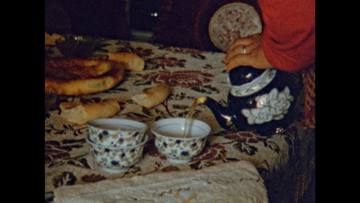
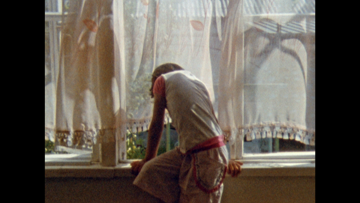
|
 Djamilia
Djamilia


